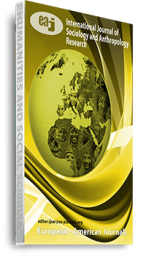This article focuses on the socio-cultural factors affecting the autonomy of married women in reproductive decisions in Nsukka L.G.A. of Enugu State, Nigeria. Three vital areas of reproductive decision making were discussed namely: decision on the number of children to have in the family, decision on the place to seek care during pregnancy/childbirth, and decision on the use of contraceptives for family planning purposes. The data presented in this article were derived from a study carried out in Obukpa, in Nsukka Local Government Area of Enugu State Nigeria in 2011. Both quantitative and qualitative methods of data gathering were utilized. The instruments for data collection were the questionnaire, in-depth interview and focus group discussions. The findings of the study showed that married women in Obukpa, Nsukka L.G.A. do not have autonomy of reproductive decisions. Socio-cultural factors like residence, age, educational qualification, religion, occupation, did not positively affect the autonomy of reproductive decisions of married women. Their autonomy was basically affected by ‘culture’, which portrays male dominance. This is typical of a patriarchal society; which includes Obukpa in Nsukka Local Government Area of Enugu State, Nigeria.
Keywords: Autonomy, Contraceptives, Family Planning, Married Women, Reproduction Rights, Reproductive Decisions, Reproductive Health

